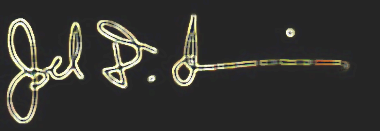Book Review: Sea of Tranquility1/24/2023  Sea of Tranquility by Emily St. John Mandel Sea of Tranquility by Emily St. John MandelMy rating: 5 of 5 stars When I read Emily St. John Mandel's Station Eleven a few years ago, I was thoroughly impressed with the author's thoughtful, insightful twist on science-fiction. Here, at last, was an author who married literary aspirations with the tried-and-true tropes of Sci-Fi, validating a genre that is all too frequently dismissed by critics and "serious" readers. In a rare circumstance, the book actually improves upon its archetypal ancestor, Stephen King's The Stand . Despite some of that novel's imperfections (like the mathematical/scientific implausibility of a virus that simultaneously spreads across the globe while killing its hosts within just a day or two), Station Eleven artfully captures the timeless elements of trauma, grief, loss, and growing up. It's nothing short of a modern masterpiece. With Sea of Tranquility, Emily St. John Mandel returns to the Sci-Fi landscape in which she found fame, and once again incorporates elements of global pandemics (multiple pandemics, in fact). In four intricately intertwined narratives, Mandel delivers a unique cast of characters: a British expatriate in 1912, a grieving woman in pre-pandemic 2020, a novelist on a book tour in 2203, and a time traveler in 2401. These four disparate threads are more intimately stitched together than one might assume, with an inexplicable time/reality "glitch" uniting the figures across the centuries. Without revealing too much, I will happily report that Mandel delivers the goods in the novel's final act, saving the best twists and turns for the last portion of the book. Unlike, say, Jodi Picoult, Mandel leaves a feast of breadcrumbs for her readers. Whenever there's a plot twist, you can be sure that the author has "done the work" to provide clues for the audience - whether it's subtle details like eye colors and music, or larger passages that repeat important observations and characteristics. It is during the last portion of the novel that Mandel weaves together all her disparate threads - and proves she is a modern master of science-fiction, a worthy heir to Margaret Atwood. Mandel incorporates some clever "meta" moments in Sea of Tranquility: the story's 23rd-century novelist, Olive Llewellyn, is touring in support of a science-fiction novel about a global pandemic... not unlike Mandel's own experiences as the writer of Station Eleven. During interviews with journalists and lecture hall Q&A sessions, Mandel pokes fun at some of the nuanced criticisms of Station Eleven: How many books did the author sell during the pandemic? Is the death of the novel's antagonist too anticlimactic? Does the author feel validated or vindicated knowing that they wrote a book about a fictional global pandemic shortly before the outbreak of a real global pandemic? There are moments of humor and heartbreak in equal measure, as Mandel uses the avatar of Olive to explore some of her own real-life experiences. Although it's dangerous to assume that writers use autobiographical elements in their novels, I'm always fascinated by the overlapping Venn diagram circles of fiction and non-fiction; I love it when an author's personal experiences are imbued and embedded within their creations. Though it's a precarious wire to walk, the author simply jumps and jetés on that tightrope in Sea of Tranquility. Such acrobatic feats are remarkable from any writer, let alone one as adventurous as Mandel. Though Sea of Tranquility is quite possibly brilliant, it's not entirely flawless in its execution. The opening chapters, featuring Edwin St. Andrew, feel tedious and almost deterred me from continuing the book; as someone who finds that era of history foreign and uninteresting, I had to struggle through Mandel's first act before I found myself invested in the story. Because of my experience reading Station Eleven, I decided to give Sea of Tranquility the benefit of the doubt - and thank goodness I didn't abandon this ship! Additionally, while Mandel does an excellent job of tidying up loose ends for Gaspery-Jacques Roberts, the fates of other characters seem maddeningly incomplete and unnecessarily truncated. It's strange to watch a writer who effortlessly crafts tidy endings for some characters leave readers unfulfilled with other storylines. While I admire ambiguity in storytelling, I also crave closure... and the two are not mutually exclusive. Likewise, the subplots involving "simulation theory," while injecting faint hints of The Matrix into the narrative, seem slightly forced and unresolved; I only hope that the author revisits these strands of her storytelling in the future. So, while I have very few complaints and criticisms about Sea of Tranquility, they're reminders that Mandel still has a little room for growth as a writer. Despite these imperfections, Sea of Tranquility is still a thrilling read - one that will appeal to fans of literary fiction and Sci-Fi. While pandemic plagues and time travel have been addressed in media countless times before (there are echoes of 12 Monkeys throughout the novel), Mandel imbues her novel with a sense of humanity and organic authenticity that often escapes the attempts of middling science fiction writers. One of Sea of Tranquility's key lines, “A life lived in a simulation is still a life," is an excellent reminder that Mandel is ultimately most concerned with life, not the trappings of outer space or the failings of a far-off future. Because of this, Mandel capably offers a prayer for the present, a reflection of our own worlds through the filtered lens of fantasy. In the end, Sea of Tranquility masterfully captures the essence of the human spirit - an accomplishment which is even more impressive considering its fanciful imagining of the future and its insightful examination of the past. View all my reviews
0 Comments
Leave a Reply.AuthorMild-mannered librarian by day… and a mild-mannered rock & roller by night. Archives
August 2023
Categories |

 RSS Feed
RSS Feed
